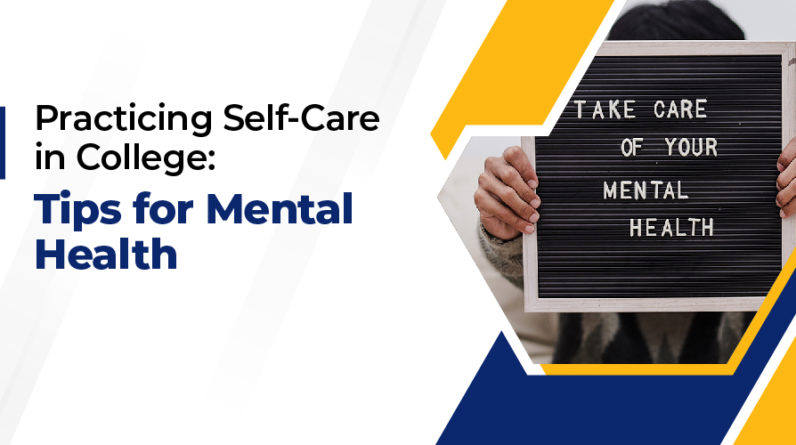
The Importance of Mental Health and Self-Care in College
College is often perceived as one of the most pivotal periods in a person’s life. It is a time of learning, growth, and development, but it can also be a time of immense stress and pressure. The importance of mental health and self-care in college cannot be overstated. In this comprehensive article, we will explore why mental health is crucial for college students, how self-care practices can improve well-being, and offer practical tips for maintaining both.
Understanding Mental Health in College
The College Stress Epidemic
College students face a multitude of stressors. Academic pressures, social challenges, financial worries, and the transition from adolescence to adulthood all contribute to a stress-filled environment. According to the American College Health Association, a significant percentage of college students report feeling overwhelmed by their responsibilities. This stress can lead to anxiety, depression, and other mental health issues if not properly managed.
Why Mental Health Matters
Mental health is a critical component of overall well-being. Good mental health allows students to cope with the stresses of college life, maintain healthy relationships, and make sound decisions. Conversely, poor mental health can lead to a host of problems, including poor academic performance, substance abuse, and even suicide. Recognizing and addressing mental health issues early can prevent these negative outcomes and promote a healthier, more fulfilling college experience.
The Role of Self-Care in Maintaining Mental Health
What is Self-Care?
Self-care refers to activities and practices that individuals engage in regularly to reduce stress and enhance their well-being. It is about taking time to nurture your body, mind, and spirit. For college students, self-care is essential to manage the demands of academic life and maintain mental health.
Types of Self-Care
There are several types of self-care, each important in its own way:
Physical Self-Care: This includes activities like regular exercise, adequate sleep, and healthy eating. Physical well-being is closely linked to mental health, and taking care of your body can significantly reduce stress and improve mood.
Emotional Self-Care: This involves activities that help you connect with your emotions and express them in healthy ways. Journaling, talking to a trusted friend, or seeking therapy are all examples of emotional self-care.
Social Self-Care: Maintaining healthy relationships and engaging in social activities can provide support and reduce feelings of isolation. Joining clubs, participating in group activities, and staying connected with family and friends are important aspects of social self-care.
Spiritual Self-Care: For some, engaging in spiritual practices such as meditation, prayer, or spending time in nature can provide a sense of peace and purpose.
Practical Tips for Mental Health and Self-Care in College
Establish a Routine
Having a daily routine can provide structure and reduce the chaos of college life. Schedule time for classes, study sessions, meals, exercise, and relaxation. A well-organized schedule can help manage time effectively and reduce stress.
Prioritize Sleep
Sleep is crucial for mental health. College students often sacrifice sleep for study or social activities, but this can lead to burnout and poor academic performance. Aim for at least 7-9 hours of sleep per night and establish a regular sleep schedule.
Stay Physically Active
Regular physical activity has been shown to reduce symptoms of anxiety and depression. Incorporate exercise into your daily routine, whether it’s going to the gym, taking a yoga class, or simply walking around campus.
Eat a Balanced Diet
Nutrition plays a significant role in mental health. Avoid excessive caffeine and sugar, which can cause mood swings and anxiety. Instead, focus on a balanced diet rich in fruits, vegetables, whole grains, and lean proteins.
Practice Mindfulness and Relaxation Techniques
Mindfulness practices such as meditation, deep breathing exercises, and progressive muscle relaxation can reduce stress and improve mental clarity. Set aside time each day for mindfulness activities to help manage anxiety and stay focused.
Seek Support
It’s important to recognize when you need help and to seek support from others. Most colleges offer resources such as counseling services, peer support groups, and wellness programs. Don’t hesitate to reach out to these resources if you are struggling.
Stay Connected
Maintaining connections with family and friends can provide emotional support and reduce feelings of loneliness. Make time for social activities and stay connected with loved ones, even if it means scheduling regular phone calls or video chats.
Set Realistic Goals
Setting achievable goals can help you stay motivated and reduce feelings of overwhelm. Break down larger tasks into smaller, manageable steps, and celebrate your accomplishments along the way.
Engage in Activities You Enjoy
Taking time to do things you enjoy is an important part of self-care. Whether it’s a hobby, a sport, or simply reading a good book, engaging in enjoyable activities can provide a much-needed break from academic pressures.
Conclusion
The importance of mental health and self-care in college cannot be overstated. By recognizing the challenges and stressors of college life and proactively engaging in self-care practices, students can enhance their well-being and academic performance. Establishing a routine, prioritizing sleep, staying active, eating well, practicing mindfulness, seeking support, staying connected, setting realistic goals, and engaging in enjoyable activities are all essential strategies for maintaining mental health in college. Taking care of your mental health is not only beneficial for your academic success but also for your overall quality of life.

Hi, I am John Smit a Captain in Fire Department City of Newyork with over years of experience in the field of Firefighting and HSE. My passion for fire safety started when I was a young boy and witnessed a neighbor’s house go up in flames along with precious lives. Since then, I had dedicated my life to ensuring the safety of buildings, properties, and individuals in case of a fire and medical emergencies.



